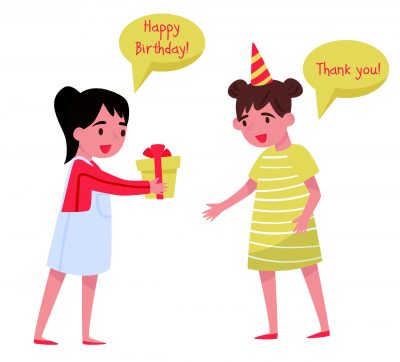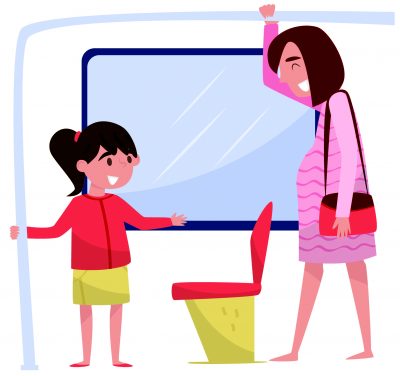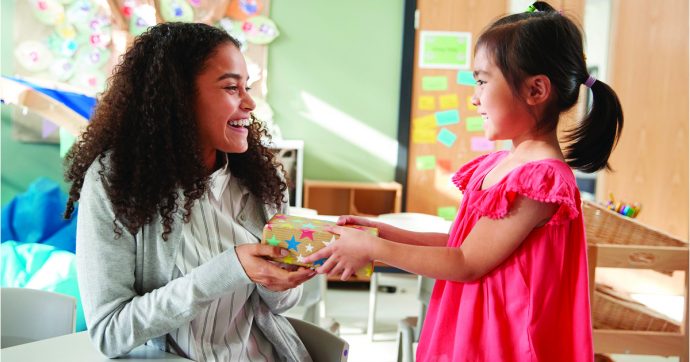Parenting approaches evolve over time. In the old days, parents were stricter and had no qualms using physical punishments if their children were rude.
Today, parents are usually more lax, and their children may become spoilt and lack manners. This does not mean that parents have to be harsh on their children. However, good manners are not innate. Parents need to teach and demonstrate manners to their children, helping them to develop social skills and interact well with others.
Start with the basics
From 18 months, your child starts to be aware of other people’s feelings. By then, you can gradually teach manners that are appropriate to his age and developmental phase.
- Please and thank you: Teach your child to say ‘Please’ and ‘Thank you’ when asking and receiving favours, and other phrases like ‘Excuse me’ and ‘May I?’ Use these words consistently in your conversations and praise him when he uses them. He may not fully grasp their meanings yet, but he will learn that people are happy when he uses these words.

- Greetings and conversations: Show your child how to greet people properly in your culture. For example, teach him to shake or salam people’s hands when greeting. Face people directly and speak gently when conversing. Explain why foul language is bad and should never be used. Teach him when it is proper to listen or speak in a conversation through story- telling and role-play.
- Table manners: Make it a habit for your child to wash his hands before meals. Teach them to close their mouths when chewing food and to not speak with a mouth full. Take small bites and eat slowly. Playing with and spitting of food is a no- no. When he is old enough, tell him to wait for others before eating. Never reach over to grab something, but ask others to pass it. Enforce these manners at all meal times and more importantly, remember to practise them yourself!

- Playtime: Teach your child to share his cookies and take turns playing toys with his friends or siblings. Name-calling should be reprimanded. Instil good sportsmanship: be humble when winning and be supportive of others when losing. Adults must not provoke children by teasing, ridiculing, belittling or comparing them with others’ achievements.

- Respecting elders: Adults are role-models. Always greet and acknowledge the presence of elders such as parents, family, teachers, and outsiders. Address them appropriately using ‘Mr.’, ‘Ms.’, ‘Uncle’, ‘Auntie’ or other titles. However, children may be wary of new people. Adults must first greet a child with love and respect so that he will feel safe and comfortable to address them. When parents give priorities to the elders, for example, when serving food or by giving up their seats, children will also learn to do it.
Teaching kids manners: Tips

- Monkey see, monkey do: Parents have a huge influence on their child’s behaviour. He learns by watching and imitating you, so always be polite and mind your behaviour and language. They watch how you speak and react to other people. If adults cannot say sorry when they did something wrong, do not expect children to say it willingly. Moral values teach us to do the right things.
Socio-emotional skills teach us to do it willingly. - Communicate with your child: Take time to talk and ask about his day. Keep family time and tone of voice pleasant. Let this be a good opportunity for him to practise his conversational manners and develop his communication skills.
- Teach empathy: Empathy is about putting yourself in the shoes of others. Tell him the golden rule – treat others as how you want to be treated. As he learns to empathise, he will learn to think beyond his own needs and understand the purpose of being polite.
- Avoid inappropriate content: Children are very impressionable and tend to imitate what they see on TV or online. Monitor what shows or games he is watching or playing, and determine if they are appropriate. Limit his screen time according to his age.
Teaching manners to your child from young will help him to get along well with others. Start by being polite, sensitive and respectful of other people’s feelings. When he behaves appropriately, reinforce it positively with praises, hugs, smiles. Catch them doing the right thing and praise them, instead of doing the wrong thing and punishing them.



Comments